News
-
 Health & Medicine
Health & MedicineBrain’s support cells play role in hunger
Once considered just helpers for neurons, astrocytes sense the hormone leptin and can change mice’s appetites.
-
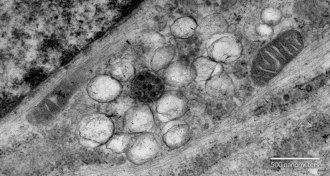 Life
LifeDrug candidate takes new aim at MERS
An experimental drug that shuts down construction of virus-making factories could become a new weapon against MERS.
By Meghan Rosen -
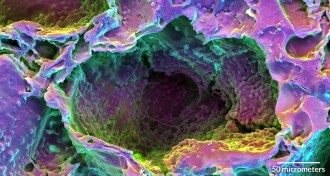 Tech
TechLasers heal damaged rodent teeth
Handheld laser spurs stem cells into action, regrowing dentin in drilled teeth.
By Meghan Rosen -
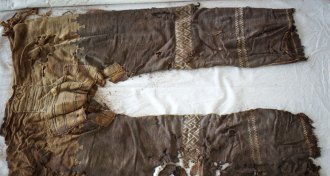 Archaeology
ArchaeologyFirst pants worn by horse riders 3,000 years ago
A new study indicates horse-riding Asians wove and wore wool trousers by around 3,000 years ago.
By Bruce Bower -
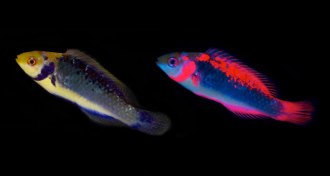 Animals
AnimalsReef fish get riled when intruders glow red
A male fairy wrasse gets feisty when he can see a rival’s colorful fluorescent patches.
By Susan Milius -
 Climate
ClimateViolent storms may shatter sea ice
Tall waves’ effect on sea ice hints at troubled water in the future.
By Beth Mole -
 Particle Physics
Particle PhysicsProton’s magnetic properties pinned down
A precise measurement of a proton’s magnetic properties could help reveal subtle differences between matter and antimatter.
By Andrew Grant -
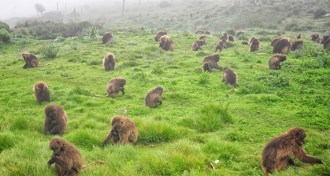 Life
LifeStarchy foods more filling than fiber, lab tests suggest
Tests of gut microbe digestion of potato starch and fiber suggest that moving away from grass-heavy ancestral diets may not be the reason for obesity epidemic.
-
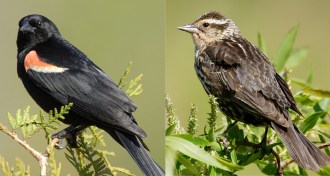 Life
LifeDrab female birds had more colorful evolution
Males weren’t the main players in evolution of sex differences in avian plumage.
By Susan Milius -
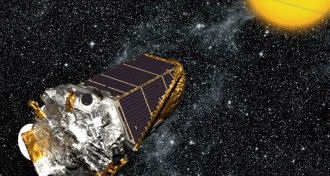 Astronomy
AstronomySun shines new life on Kepler space telescope
NASA approved a proposal to bring the crippled Kepler spacecraft back to life, using sunlight as balance to help the telescope search for planets and more.
-
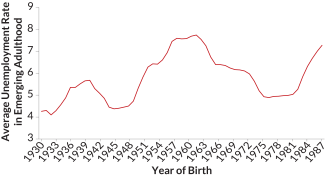 Psychology
PsychologyRecessions take a lasting toll on narcissism
Coming of age in hard economic times makes people less likely to feel superior and entitled later in life.
By Bruce Bower -
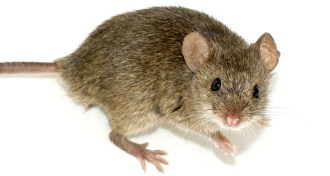 Neuroscience
NeuroscienceLife span lengthens when mice feel less pain
When rodents are missing a sensory protein, their metabolism revs up and they live longer.